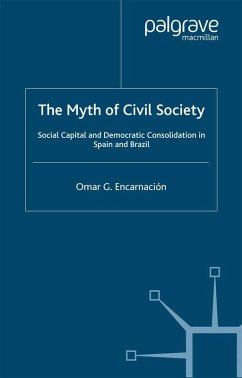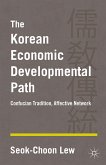Dieser Download kann aus rechtlichen Gründen nur mit Rechnungsadresse in A, B, BG, CY, CZ, D, DK, EW, E, FIN, F, GR, HR, H, IRL, I, LT, L, LR, M, NL, PL, P, R, S, SLO, SK ausgeliefert werden.
"A thought-provoking examination of the relationship between civil society development and democratization. Through illuminating case studies of Spain and Brazil, Encarnación cuts through the many accumulated myths about civil society and reaches provocative conclusions about the primary importance of efficient and stable political institutions for the development of social capital, civil society, and democracy. This is a significant and highlyuseful book." - Thomas Carothers, Carnegie Endowment for International Peace
"This excellent book presents a long overdue critique of the inflated and empirically unsubstantiated claims frequently made concerning the importance of civil society in the consolidation and qualitative deepening of democratic regimes. It correctly refocuses our attention on political institutions and actors as the key agents that forge the 'social capital' that helps to sustain democratic regimes, and itassesses empirical evidence (particularly from the paradigmatic contrasting cases of Spain and Brazil) that challenges the frequent
assertion that high aggregate levels of associational membership, per se, are crucial for the health of democracy. This book should be of considerable interest both to scholars, and to those in NGOs and government agencies involved in the encouragement of democracy around the world. It is a welcome antidote to the conventional wisdom that has been widely accepted in an uncritical and unwarranted manner in recent years." - Richard Gunther, Ohio State University









